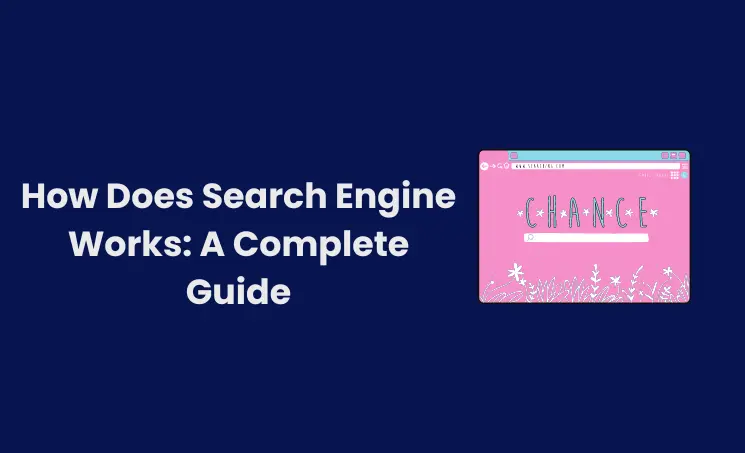If some one asks a Question of” what is search engine?”, As a nerd we thought it’s Google. After some time we’ll get the clarity that Google is one of the search engine like Yahoo, Bing, DuckDuckGo, etc. We people always use search engine in our day to day life to search for information’s. Have you ever been curious about how search engines work at least once in your life?. If the answer is Yes, then you are in the right place to feed it.
How do search engine works:
Search engine like Google, Yahoo, have a separate database to store and retrieve the information when user search for it. Before this process the specific information will undergone into five step of process to get it index on database as follows:
Step by Step of How search engine works:
URL Discovery:
To get index a specific page or post, first we need to make sure that the URL is available to search engine crawlers by making it available on sitemap or Giving referral links to the new page or post from an old page or post which is already got indexed. So that Search engine bots will periodically crawl every pages/posts in a website that can easily identify the new page or post. Once the URL is being discovered Crawlers will start to check is that specific page blocked by No index tags & Robot.txt.
Crawling :
Once the crawlers identifies that the specific URL is not getting blocked by Robot.txt & No index tag. It will start crawl the page/post. While crawling, the crawlers starts to crawl the link and starts to “Fetch” the page. “Fetching” refers to the action of downloading the web pages from internet.
Rendering:
Once the content gets Fetched form internet, Crawlers starts to evaluate “is the intent of the page matches the users need?”. Also it starts to analyze and determine the relevance, keywords, links, and other information present on the page. After analyzing it the whole content of the page will get converting to HTML, CSS, JS. It also integrates CSS styles and executes any JavaScript code to ensure that the final display is accurate and interactive. This process is crucial for accurately indexing and ranking web pages in search results.
Indexing:
After the rendering process, the search engine initiates the indexing process which involves steps called parsing and Tokenization. “Parsing” means the rendered HTML Content will be broken down into elements such as heading, paragraph, Image and links. After that these broken-down content is then split into smaller parts called tokens. These tokens can be words or other important pieces of information. Once the parsing and tokenization got over it starts to storing the Metadata about the webpage. This metadata can include information such as the web page’s URL, title, creation date, last modified date, and more. Storing this metadata makes it easier to retrieve and present search results accurately.
Ranking:
After indexing, the next step in the search engine process is ranking and retrieval. Once web pages have been indexed, the search engine’s algorithms determine the relevance and importance of each indexed page in relation to specific search queries. This involves analyzing various factors, such as keyword relevance, quality of content, user engagement metrics, and the authority of the website. This ranking process involves evaluating thousands or even millions of indexed pages based on it’s 200 ranking factors to provide the user with the best possible search experience.
It’s not certain that all the indexed pages will rank. To start ranking on SERP you need to be aware of the important ranking factors like Publishing the quality content consistently, backlinks, and many more. But, By Meeting the user’s need by your content quality will surely boost your visibility on SERP in a long-term basis.
Author
-
A Digital marketing expert with 2 Years of hands-on experience in On-page SEO, Off-page SEO, and WordPress. Currently working as a SEO Interim Manager at 7Eagles. He Completed his Master Degree MBA Specializing in Marketing and Finance. He has 2 Years of work experience in Digital Marketing Field. He Handled projects in Saas, Healthcare, Finance, Real-estate. He is strong on Handling Y.M.Y.L (Your Money Your Life) Niche projects.




